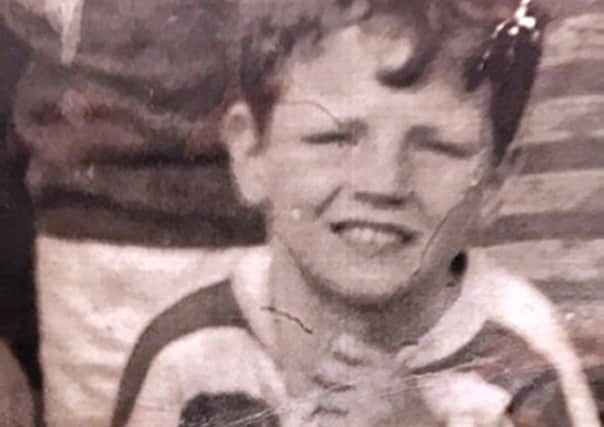Soldier who fired rubber bullet that hit boy in 1972 '˜too ill to give evicence'


He was taken to hospital on Wednesday and is undergoing further assessment, according to a barrister for the Ministry of Defence (MoD).
The soldier, whose identity is protected and is known only as Soldier B, had been due to give evidence to Belfast Coroner’s Court via video-link.
Advertisement
Hide AdAdvertisement
Hide AdMartin Wolfe QC, representing the MoD, said: “It is the case that Soldier B has presented every morning he was scheduled at the point in place where he was supposed to give evidence.
“He was required to leave the place as a matter of urgency and attended at hospital. He has well diagnosed and properly defined conditions.
“He returned home very late last night at about 11pm. He has yet to be seen by his family doctor. We will make every effort that proper medical evidence is before you to vouch for what has been said.”
Eleven-year-old Francis Rowntree died two days after he was hit on the head by a rubber baton round while walking through the Divis Flats complex close to Belfast’s Falls Road in April 1972.
Advertisement
Hide AdAdvertisement
Hide AdThe case is mired in controversy with disputed claims on whether the boy was hit directly or injured by a ricochet, and if the bullet had been doctored to make it potentially cause more harm.
Fiona Doherty QC, representing the Rowntree family, said they were disappointed.
“Obviously it is disappointing that we are not going to hear evidence from Soldier B as planned, but we look forward to hearing that he has recovered and will be fit to return to give evidence in due course.”
Judge Brian Sherrard, who is presiding over the high profile inquest, described the situation as unfortunate and demanded medical evidence be produced.
Advertisement
Hide AdAdvertisement
Hide AdThe coroner said: “It is unfortunate that we find ourselves in this position but we are dealing with relatively elderly people with pre-existing medical conditions; these things happen from time to time.”
The hearing continues.